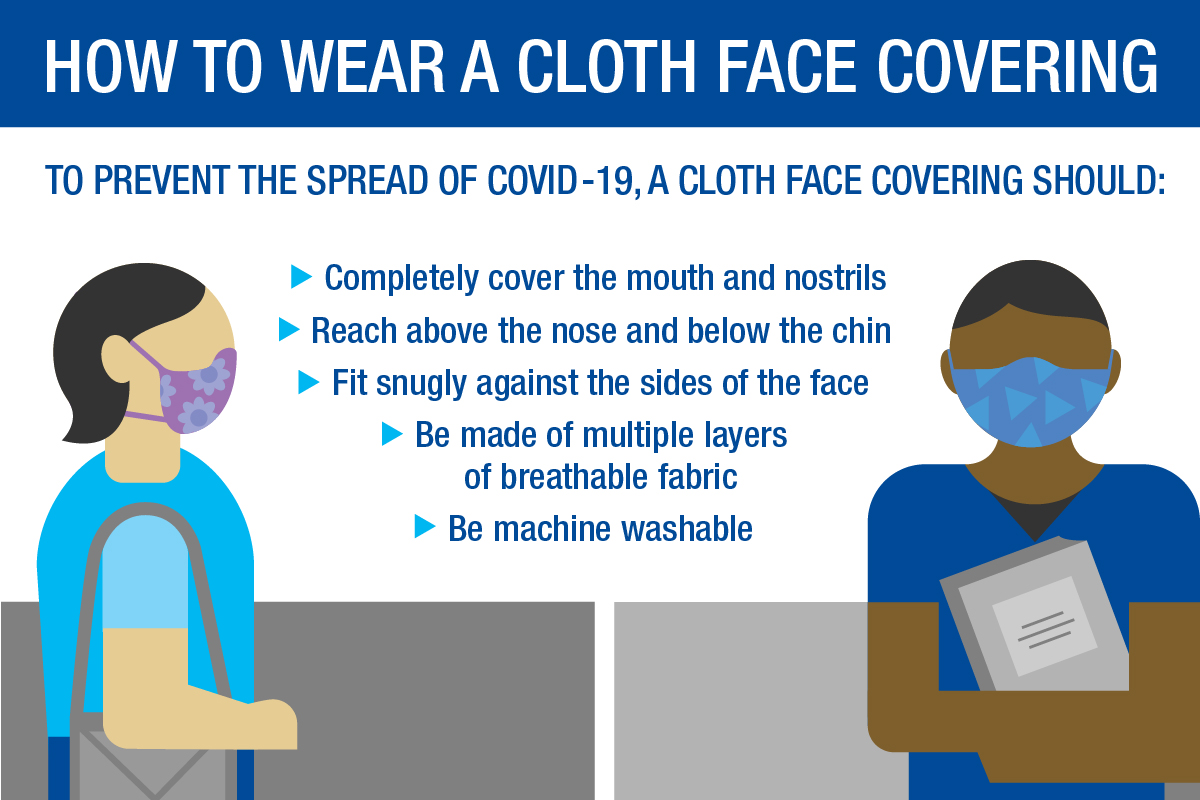Diabetes and COVID-19: 5 tips to stay well during the pandemic
May 14, 2020

By Jaime A. Davidson, M.D., F.A.C.P., M.A.C.E.
The COVID-19 pandemic has shined a spotlight on the intense, negative impacts of chronic, inflammatory conditions – namely type 2 diabetes – on our immune systems.
More than 10% of U.S. adults have diabetes – that's more than 34 million people. Of these, approximately 90% to 95% have type 2 diabetes, which develops as a result of genetic predisposition, diet, lifestyle, and environmental factors.
Another 88 million U.S. adults have prediabetes – high blood sugar on its way to becoming diabetes. Changing eating habits and having an exercise program or walking at least 150 minutes per week may help you prevent that next step of becoming one more person with diabetes. At a minimum, you can delay the onset, which by itself is important.
Unfortunately, at least 30% of patients who have diabetes do not manage their condition effectively – and 7 out of 10 don’t reach their target goals. Research at UT Southwestern's Touchstone Diabetes Center and around the world have shown that patients with diabetes tend to have worse outcomes from viral infections. COVID-19 has driven that point home.

Patients with diabetes and COVID-19 are more likely to require ventilator support to breathe. In Dallas, nearly a third of patients who required hospitalization from COVID-19 also had diabetes.
While having diabetes does not necessarily render you more at risk to catch the virus, it increases your risk of serious complications. According to the Centers for Disease Control and Prevention (CDC), if your diabetes control is poor, it might increase the risk of getting infected and having more serious complications.
Diabetes is a complex condition that involves the endocrine, cardiovascular, and metabolic systems. It reduces the body's sensitivity to insulin, a hormone created in the pancreas that helps the body break down and store carbohydrates (sugars, or glucose).
Insulin resistance leads to inflammation, the body's natural healing defense. And inflammation increases insulin resistance. Over time, the ongoing tug-of-war damages the heart, kidneys, pancreas, and other vital organs.
Chronic inflammation also weakens the immune system. When a virus such as COVID-19 invades the body, the immune system is less capable of fending it off. In 20% to 25% of patients, the body will launch an extreme inflammatory response, worsening patient outcomes and increasing the risk of death.
Admittedly, this is a negative introduction into good news. By having this knowledge, you can reduce your risks and practice self-care now that can improve your health during and long after the pandemic.
5 diabetes self-care tips during the pandemic
This pandemic has reminded us – and given us an opportunity – to control the controllables. Now is a good time to start improving healthy habits in five key areas you can control when it comes to managing type 2 diabetes.
1. Take your medication as directed
False reports have suggested that taking diabetes or high blood pressure medications makes you more susceptible to catching the virus. That's just not true. If you stop taking prescribed medications, you're setting yourself up for serious complications.
While we're at it, let's dispel a few more myths. Drinking alcohol or smoking will not kill the virus or protect against it. Both activities lower our immunity and could increase the risk of poor outcomes. And please do not eat, drink, inject, or inhale disinfectants. Cleaning products are designed for external surfaces – not our insides.
Related reading: Diabetic eye disease: How to spot the signs early
2. Stay active while you are at home
Exercise such as walking and lifting light weights is important to diabetes management. It can help you achieve a healthy weight, which can improve your blood sugar control. Exercise can also reduce your risks for other chronic issues, such as high cholesterol and high blood pressure.

Second, staying active builds in opportunities to monitor your foot and leg health. Neuropathy, or loss of sensation in the lower extremities, is common with diabetes. If you have it and you step on an object that cuts your foot, you might not feel it. The cut can fester into an ulcer and lead to a serious infection that can be difficult to control. (This is particularly important now because many of us are staying at home and going barefoot.)
As you're putting on your walking shoes or getting ready for yoga, look for wounds. If the area is swollen, irritated, or discolored, call the doctor to see what you should do, particularly if the wound doesn't heal on its own within two weeks.
Related reading: Time is tissue: Tips to manage and prevent chronic wounds and ulcers
Third, exercise is great for your mental health. Even light exercises like walking release the body's "feel good" hormones called endorphins. Focusing on exercise is also a form of mindfulness, which can help calm the mind and reduce stress.
It is safe and healthy for most people in the Dallas area to put on a face mask and take a walk outdoors. Practice physical distancing, avoid touching your face (especially your nose and eyes), and wash your hands when you get home. Many gyms are also offering free workout programs online to help you stay active indoors.
Related reading: 6 ways to improve wellness during the pandemic
3. Eat properly and stay hydrated
Managing your nutrition is a balancing act. You need the right amount and right type of carbs to maintain healthy blood sugar levels throughout the day.

Fill your plate with:
- Non-starchy vegetables, such as broccoli, tomatoes, and green beans
- Starchy vegetables such as peas and sweet potatoes
- Fruits, like berries and apples
- Beans (black, kidney, lentils, and chickpeas)
- Whole grains, including brown rice and steel-cut oats
Try to avoid:
- Sweets, like candy and cookies
- Chips and salty snacks
- Juice and soda
- Sugary tea
- White breads
- Processed cereals
- White rice
Patients with type 2 diabetes are more prone to dehydration. Insulin challenges lead to extra sugar in the blood, which means your kidneys have to work harder to get rid of it. If your kidneys are overtaxed, you'll urinate more often and potentially get dehydrated.
Make a habit of sipping sugar-free, caffeine-free beverages throughout the day. Water is the best choice. Minimize alcohol consumption – it's often full of carbs and can increase dehydration.
Related reading: Quarantine cuisine: Easy meals to support a healthy immune system
4. Mind your immunity
While there's no magic pill to boost immunity, you can make choices each day to improve your health – and thereby improve your immune system.

- Sanitize everyday objects often, including cell phones, tablets, and door handles. These high-touch surfaces can be germ magnets.
- Wash your hands according to the COVID-19 guidelines. Using warm water and soap, wash the fronts and backs of the hands for at least 20 seconds. Make sure you also clean under your nails. You can use a spare toothbrush and soap to gently remove germs hiding there.
- Wear a face mask when running errands. This simple act helps protect you from people who may be infected but not displaying symptoms – in some patients, symptoms don't appear until 14 days after infection. Since the virus can travel through the air, make sure your mask covers your nose and mouth.
You can go in public safely if you are smart about it. Remove your mask before you get back in the car or enter your home to avoid contaminating your environment. If it's disposable, throw it away. If it's reusable, seal it in a bag until you can launder it. The same rules apply for gloves, should you choose to wear them.
5. Pay attention to your mental health
Shelter-in-place has helped keep COVID-19 infection rates lower in Dallas than other large metro areas like New York. However, social and physical isolation may increase anxiety and depression, particularly in people who are already managing a mental health condition.
People with chronic conditions such as diabetes might be at increased risk for stress during the pandemic, according to the Centers for Disease Control and Prevention. And many people with diabetes also have depression, due in part to the added responsibilities and restrictions of the disease.
Stay in touch with the people who care about you, especially during the pandemic. While we can't be together in person right now, we can use technology like video calling to connect with friends and family.
If you are struggling with low mood, anxiety, or unexplained fatigue, request an appointment to discuss your mental health. Nearly all of our mental health care is available via phone or video visits right now – you can get the help you need from home.
Related reading: 6 ways to support seniors during the COVID-19 pandemic
Watch for symptoms – and get help right away
The most common symptoms of COVID-19 are dry cough, fever, and fatigue. Some patients also experience headaches or lost sense of taste or smell.
If you or anyone in your home experience these symptoms, get tested. Drive-up testing is available on the UT Southwestern campus at the Bass Administrative and Clinical Center with a referral from a UT Southwestern doctor.
Parkland Hospital offers drive-up testing by appointment only. Call the COVID-19 Patient Line at 214-590-8060 to request an appointment.

Heart attack, stroke symptoms still an emergency
Extensive safety protocols make UT Southwestern's emergency room safer than ever and anyone experiencing heart attack or stroke symptoms should not hesitate to call 911 or come to the ER.
Call 911 and go to the hospital immediately if you experience any of these symptoms:
- Bluish lips or face
- Chest pain or discomfort
- Confusion or disorientation
- Difficulty breathing
- Severe coughing
- Shortness of breath
It is safe to come to the hospital for emergency care. We have protocols in place to protect patients who do not have COVID-19 from exposure in the hospital. Getting help right away is your best chance for a positive outcome.
COVID-19 is a new virus. We are learning more every day about how it interacts with common and complex conditions such as diabetes. And as we do, we are adapting our strategies and recommendations. The pandemic will pass. You deserve to be happy and healthy on the other side.
To find out whether you or a loved one might benefit from a diabetes consultation, call 214-645-8300 or request an appointment online.










